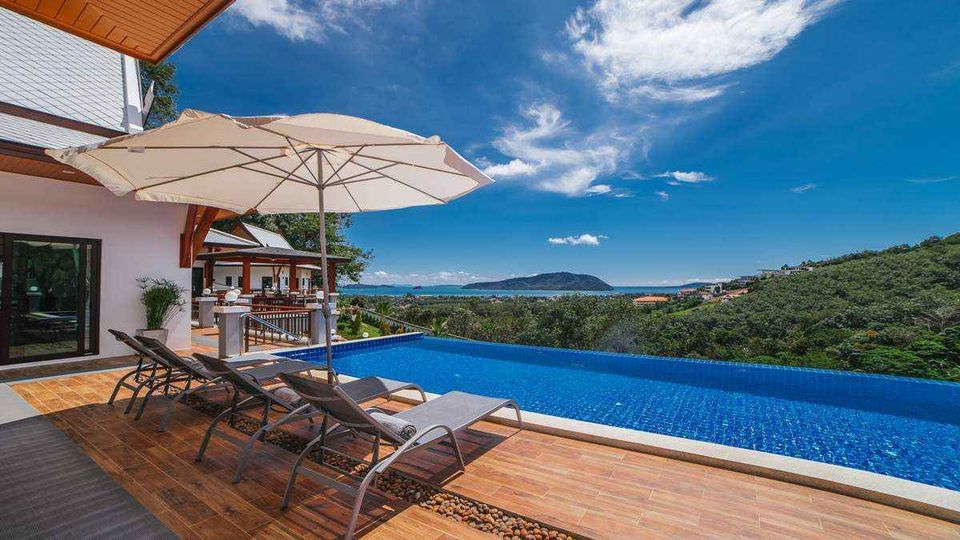Can I live in Thailand permanently?

Permanent residence permits allow you to stay permanently in Thailand without the need for a visa. Moreover, it is another step on the way to obtaining citizenship and a Thai passport. This is an opportunity that the Thai government offers to only 100 people of each nationality each year.
How much does it cost to get permanent residence in Thailand? The processing fee for the Thailand Permanent Residence Permit is 7,600 Thai Baht. If your application is approved, you would need to pay another fee for the Permanent Residence Permit Certificate: 95,700 Thai baht if you applied for permanent residence based on marriage to a Thai citizen.
How can I stay in Thailand long term?
To get a long stay visa in Thailand, you must be a student, posted in Thailand, married to a Thai person, own a business (or business) in Thailand or be old enough (over 50 years) to apply for Long Stay Retirement Visa.
Can I buy residency in Thailand?
All applications for Thai Permanent Residency are processed by the Royal Thai Immigration Commission. The annual quota for granting permanent residence in Thailand is a maximum of 100 persons per country. The application period for Thai PR is usually from October to the end of December each year.
How long can foreigners live in Thailand?
When moving to Thailand, you will need a visa – a requirement under Thai immigration law. Most people who move to Thailand do so on a tourist visa (valid for 60 days) or a non-immigrant visa, which is initially valid for 90 days and must then be extended through Thai Immigration.
Can foreigners buy apartments in Thailand?

Foreigners are not allowed to buy land in Thailand, but you can buy apartments and condominiums as a non-citizen. However, foreigners cannot make up more than 40% of the total unit owners of the block of flats or condominiums. Interestingly, you can buy the entire building as a foreigner, but not the land it is built on.
Can a foreigner buy a townhouse in Thailand?

It is a widely unknown fact that although a foreigner cannot own land in Thailand, he can own the house or structure built on it. You only need to apply for a building permit to build the house in your own name.
Can foreigners own real estate in Thailand? Answer: Under Thai law, foreigners cannot own land directly in their name. However, they can buy owner-occupied flats outright (Freehold) or buy a landed property and rent the land (usually for 30 years, with the possibility of extension) on which the property is located.
Can a foreigner own a villa in Thailand?
Given restrictions on land ownership, foreigners cannot own a villa outright, but rather must purchase a lease agreement. Generally, this process is straightforward, and you should expect to be offered a 30-year lease on any villa or home, which is the maximum duration for any tenancy in Thailand.
Can foreigners own townhouses in Thailand?
The simple answer is “Yes” it is legally possible! Property ownership by non-Thai citizens is possible with certain restrictions. Foreign investors and home buyers can own Condominium Freehold Titles (Condos); however, they cannot directly own land or landed property (i.e., villas, townhouses and shophouses).
What happens after leasehold ends?

Ownership of the property reverts to the lessor when the tenancy ends. Most apartments are rented. Houses can also be leaseholds and are usually so if they are bought through a shared ownership arrangement.
What happens at the end of a 99-year lease in the UK? When the lease on a property expires, the property reverts to being a freehold, where the ownership of both building and land belongs to the freeholder. Even if you have paid off your mortgage and own the property outright, you have no legal rights to the property when the lease expires.
Is leasehold worth buying?

In summary, buying a rental property is acceptable as long as you are careful about what you buy. In most cases, the long length of the lease, combined with your legal right to renew your lease, will mean that your interest in the property is satisfied.
Should rentals be avoided? If you’ve fallen in love with a property that happens to be a rental, there’s no reason why you shouldn’t go ahead and buy it. Leases in themselves are not a problem – it’s bad leases that are the problem. Terms in your tenancy agreement mean that if you have problems, for example with noisy neighbours, this can be resolved.
What are the disadvantages of buying a leasehold property?
What are the disadvantages of a lease?
- You pay service charges and ground rent to the freeholder, which may increase
- You must have written permission from the owner to change the property, and large fees may apply
- You may not be allowed to have pets
- You may not be able to run a business from home








